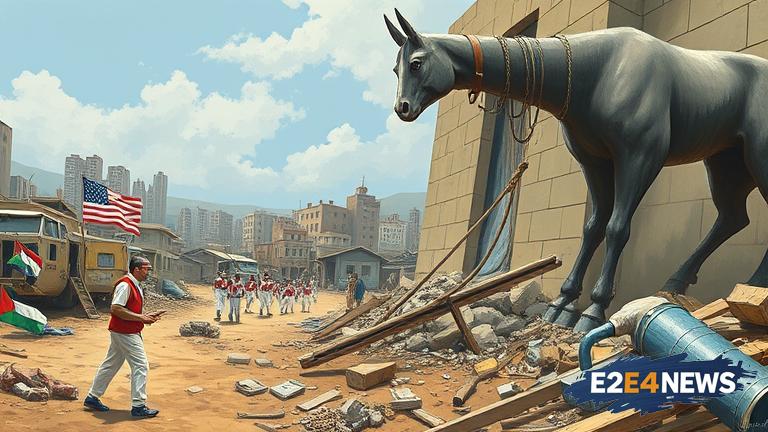The United States has introduced a condition that links $19 billion in state disaster funds to a requirement that recipients must not boycott Israel. This move has sparked a global debate, with many countries and organizations expressing their concerns and criticisms. The condition, which is part of a larger bill, aims to prevent states from participating in the Boycott, Divestment, and Sanctions (BDS) movement, which seeks to pressure Israel to end its occupation of Palestinian territories. The BDS movement has gained significant traction in recent years, with many countries and companies boycotting Israeli products and services. However, the US move has been seen as an attempt to stifle free speech and undermine the rights of states to make their own decisions. The condition has been met with widespread criticism, with many arguing that it is an overreach of federal power and an infringement on the rights of states. Others have argued that the condition is unnecessary and that the US should focus on more pressing issues, such as climate change and economic inequality. The move has also sparked concerns about the impact on humanitarian aid, with some arguing that it could lead to a reduction in aid to countries that are already struggling. The US has a long history of providing disaster relief to countries around the world, and this condition has raised questions about the motivations behind the move. Some have argued that the condition is a result of lobbying by pro-Israel groups, while others have suggested that it is an attempt to distract from other issues. The condition has also sparked a debate about the role of politics in disaster relief, with some arguing that aid should be provided based on need, rather than political considerations. The US is not the only country to have introduced such a condition, with other countries also introducing similar measures. However, the US move has been seen as particularly significant, given its role as a global leader in disaster relief. The condition has also raised questions about the impact on international relations, with some arguing that it could lead to a deterioration in relations between the US and other countries. The move has been seen as a victory for pro-Israel groups, who have been lobbying for such a condition for several years. However, it has also sparked concerns about the impact on the Palestinian people, who have been affected by the Israeli occupation for decades. The condition has also raised questions about the role of the US in the Middle East peace process, with some arguing that it could undermine efforts to achieve a peaceful resolution. The US has a long history of involvement in the Middle East peace process, and this condition has raised questions about its commitment to a two-state solution. The move has also sparked concerns about the impact on human rights, with some arguing that it could lead to a reduction in protections for marginalized communities. The condition has also raised questions about the impact on the global economy, with some arguing that it could lead to a reduction in trade and investment. The US is one of the largest economies in the world, and this condition has raised questions about the impact on global trade and commerce. The move has also sparked concerns about the impact on the environment, with some arguing that it could lead to a reduction in efforts to address climate change. The condition has also raised questions about the role of the US in global governance, with some arguing that it could undermine efforts to achieve a more equitable and just world. The US has a long history of leadership in global governance, and this condition has raised questions about its commitment to these values. The move has also sparked concerns about the impact on social justice, with some arguing that it could lead to a reduction in protections for marginalized communities. The condition has also raised questions about the impact on democracy, with some arguing that it could undermine efforts to achieve a more democratic and inclusive society. The US is one of the oldest democracies in the world, and this condition has raised questions about its commitment to these values.





